Prof. Dr. Laura Neumann
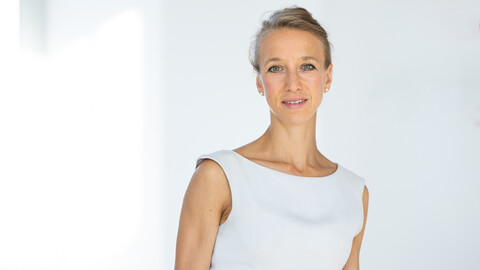
Chair of German, European, and International Criminal Law, Criminal Trial Law, and Commercial Criminal Law
“I actually wanted to become a judge.” That was how a smiling Professor Laura Neumann—who on 1 August 2023 was appointed the new Chair of German, European, and International Criminal Law, Criminal Trial Law, and Commercial Criminal Law—began our conversation, before adding: “But over the years, my interest in academia developed into a true passion, especially during my doctorate.” Born in Viersen in northwest Germany, Neumann went on to study in Heidelberg, Rome, and Munich. Her doctoral thesis was awarded the LMU Munich Faculty of Law’s 2014 Faculty Prize. Following her doctoral studies in Munich, she spent spells in Cambridge and Atlanta in the US as a visiting researcher and completed her legal traineeship, which took her to Berlin, Düsseldorf, and Tokyo. “During my time in Tokyo, my doctoral supervisor asked me whether I’d be interested in co-supervising a DFG research project alongside completing a Habilitation treatise. Even though that option had never even crossed my mind before then, I immediately knew there was nothing I’d rather do. So, the offer was my personal jackpot,” she recalled.
In July 2022, she completed her Habilitation at LMU Munich. Her treatise was about European agencies’ power to impose regulatory sanctions, with a particular focus on criminal law in EU capital markets. During her Habilitation, Professor Neumann held visiting professorships at European University Viadrina in Frankfurt (Oder) and in Heidelberg, Mannheim, Hamburg, and Leipzig. “The University of Mannheim already made a great impression on me during my time as a visiting professor. I loved working with highly motivated students who were already well versed in economics, as well as the very friendly and inspiring working environment. So, I was incredibly pleased to be offered a post there,” recalled Neumann. “On top of that, the name of my chair here at Mannheim is a perfect fit for the focus of my research, so I have free rein to pursue my interests!” Neumann’s next steps in Mannheim are clear. She is looking forward to the motivated students, to interdisciplinary collaboration with her colleagues, to working with her team, and—above all—to carrying out a project she is truly passionate about: “Building on my Habilitation project, I want my first major research project at Mannheim to focus on the power of the Anti-Money Laundering Authority (AMLA), a planned new EU agency, to impose regulatory sanctions.”
Research interests
Selected posts
- 2023: Professor of Criminal Law and Criminal Trial Law (European, International, and Comparative) and Commercial Law, University of Bremen
- 2020 to 2023: Visiting professorships in Frankfurt (Oder), Heidelberg, Mannheim, Hamburg, and Leipzig
- 2011 to 2022: Research Associate, working under Professor Satzger, Chair of German, European, and International Criminal Law, Criminal Trial Law, and Commercial Law, LMU Munich
Prof. Dr. Mathias Staudigl
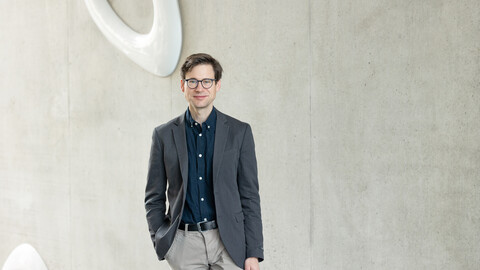
Chair of Mathematical Optimization
How can scarce resources be optimally distributed in a network? What methods are suitable for solving large-scale optimization problems in machine learning? How can we guarantee that our energy grids are robust, efficient, and reliable? Professor Mathias Staudigl’s work on mathematical optimization attempts to find answers to these fundamental questions. His research as Chair of Mathematical Optimization involves a mix of pure optimization methods and cutting-edge approaches to mathematical game theory, nonsmooth and convex analysis, dynamic systems theory (ODEs and PDEs), probability theory, and theoretical computer science.
At the moment, Staudigl is working on issues relating to energy grid optimization as part of joint projects with the French energy company EDF. The aim of these projects is to develop new methods for distributed optimization of energy grids that factor in stochastic uncertainties resulting from factors such as the increased proportion of renewables in the general energy mix. In these projects, Staudigl and his team have developed new techniques that are well suited to large-scale optimization and equilibrium problems. These techniques have been tested both theoretically and experimentally.
“In Mannheim, we’re planning to develop these numerical tools and integrate them with existing projects at the School of Business Informatics and Mathematics.” Specifically, an integrated simulation and optimization platform for natural gas and electricity networks is being planned that will serve as a first mathematical pipeline for this important category of optimization problems. “This integrated approach will not only allow a new theoretical analysis of electricity and natural gas networks, but also provide a new decision support tool for practical planning and management of large energy networks. The University of Mannheim offers an ideal research setting for this challenging project.”
Another attractive feature of Mannheim is how firmly the university is embedded within the German academic landscape. Staudigl sees the geographic proximity to outstanding research institutions as a big plus point for the region and a key element of academic exchange and cooperation.
Research interests
Selected posts
- 2015–2023: Tenure Track Assistant and later Associate Professor at Maastricht University, Netherlands
- 2012–2015: Senior Researcher (Akademischer Rat) at the Center for Mathematical Economics (IMW), Bielefeld University
- 2011–2012: Max Weber Fellow at the European University Institute (EUI), Florence, Italy
Prof. Dr. Moritz Kuhn
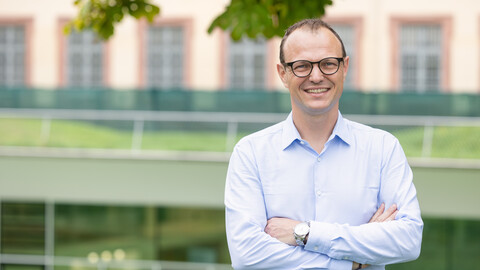
Chair of Applied Political Economy
The gulf between rich and poor is widening in Germany and worldwide. Although economic prosperity overall is growing, fewer and fewer households are benefiting. How can we prevent the majority of society from falling behind? The causes and effects of social inequalities are one of the main research interests of economist Moritz Kuhn, who in September took up the Chair of Applied Political Economy.
He approaches inequality from a variety of perspectives. For instance, he has analyzed wealth inequality in relation to the housing and stock market. His surprising finding: If house prices rise, it is good for the middle class—and wealth inequality falls. Whereas if the stock market grows, it is good for the richest households—and wealth inequality rises. This is due to the very different composition of the middle classes’ and richest households’ assets. Kuhn is currently studying the intersection between the finance and labor markets, and looking at the effect that big differences in the risk of job loss have on savings and investment decisions. In Germany, 80 percent of job losses are concentrated in around 20 percent of the workforce.
Based on data from Germany and the USA, Kuhn is creating economic models to analyze correlations and assess economic policy measures. These include questions about pension and labor market reforms as well as the effects that regulations on parental allowance and part-time work can have on employment and wealth formation. The goal, according to Kuhn, is to create and maintain an economy that works for everyone.
Kuhn studied economics at the University of Mannheim. He completed his doctorate there between 2005 and 2010 with a thesis on “Topics in Dynamic Macroeconomics,” which was supervised by Professor Tom Krebs. A native of Heidelberg, he knows the region and the university well. And after 13 years in the Rhineland, he felt ready for a change: “It was time for me to move somewhere new and find fresh inspiration.”
Prof. Dr. Stefanie Egidy, LL.M. (Yale)
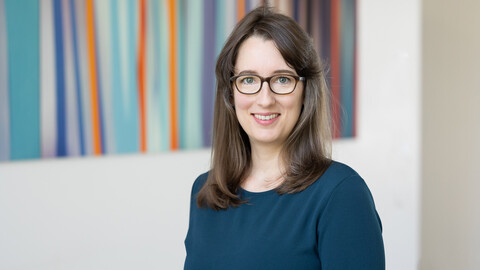
Chair of Public Law, Economic Analysis of Law, and Public Commercial Law
Legal scholars are sometimes told their subject is dry and theory-heavy. That makes absolutely no sense to Professor Stefanie Egidy, who in August was appointed Chair of Public Law, Economic Analysis of Law, and Public Commercial Law at the University of Mannheim: “Regulating Facebook, stabilizing the financial market, climate change—those are topics we all care about and that need legal solutions.” They also, she believes, show the importance of public-law regulation, which is a core topic of her research.
As her research focuses on markets and market failure, Egidy also needs an economic understanding of how markets work. “The close integration of law and economics at Mannheim is very attractive to me. It’s a great privilege to be able to work so closely with researchers in other disciplines.”
Her current research is about regulation of large platforms such as Facebook and X (formerly Twitter). How can free and equal elections be ensured under the sway of these platforms? And how can information be made accessible to everyone in society? Professor Egidy’s earlier work dealt with the global financial crisis of 2007 to 2009. That may sound like a very different topic, but at its heart is the same question: How should government institutions act in crises?
At first, the intersections with other disciplines such as behavioral economics and political science posed methodological challenges for Egidy as a legal scholar. She learned a lot about empirical work in her earlier role as a research associate at the Max Planck Institute for Research on Collective Goods in Bonn. The empirical focus of social sciences at the University of Mannheim was another factor that attracted Egidy to relocate a little farther south down the Rhine.
Prof. Dr. David Prömel
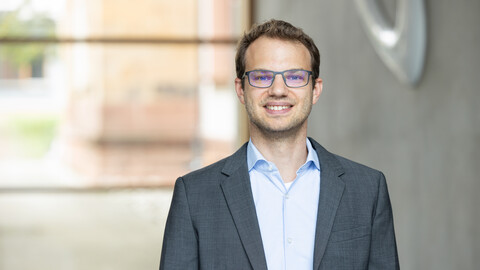
Chair of Mathematical Finance
David Prömel’s research focuses on financial mathematics, a branch of mathematics dealing with topics such as the valuation of financial derivatives or the calculation of risk. Specifically, the mathematician is interested in model uncertainty—an issue that has become important since the 2008 financial crisis. The idea arose then that error-resistant financial models could be developed that would not collapse when information was incomplete, or when an incorrect parameter was selected. Unlike models in physics or chemistry, mathematical models in finance have parameters that are, as Prömel explains, not always predictable. The reason for this is that no two days in the financial markets are alike. The data changes every day. The challenge, according to Prömel, is thus to create a model that includes the uncertainty of the markets and describes it as well as possible. Fund managers and analysts working with such a model can choose the best trading strategy and select optimal portfolios.
Prömel, who is now aged thirty-five and was already a junior professor at the Mannheim Institute of Mathematics for the past four years, remarks that he is “a passionate mathematician, first and foremost,“ although his “interests lie in the financial sphere.” When the financial crisis hit in 2008, he had only just graduated from high school. His research career has taken a fairly direct route that has included sojourns at such leading European universities as ETH Zurich and the University of Oxford. His time in Mannheim began in 2019. “The Department of Mathematics here is relatively small, but business-oriented. And having so many excellent colleagues here makes the research environment highly attractive,” Prömel comments.
